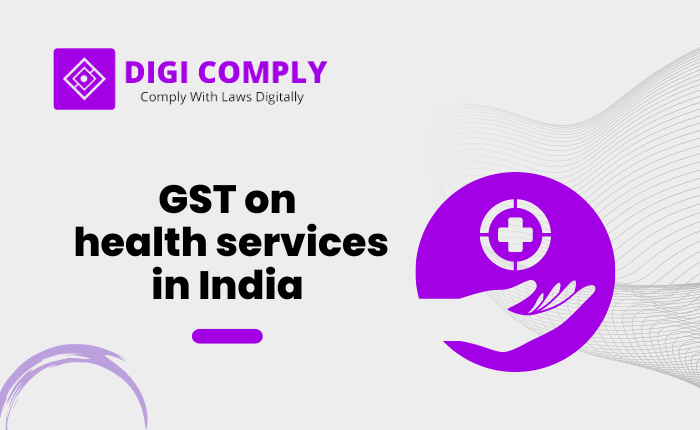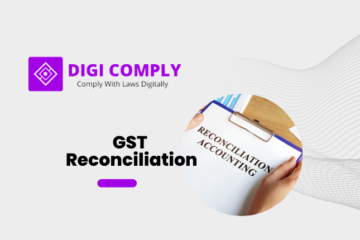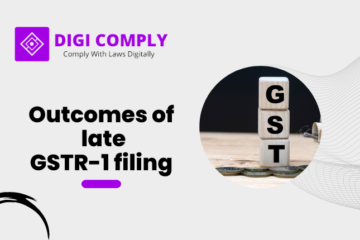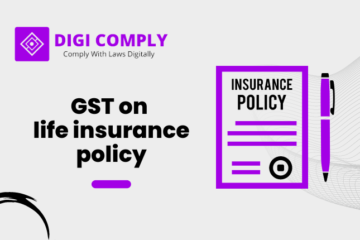In today’s fast-paced and demanding world, the ancient adage “Health is Wealth” holds more truth than ever before. Recognizing the pivotal role that good health plays in a person’s overall well-being, the Central Government has taken significant and thoughtful steps to ensure the accessibility of health care services to the general public. By exempting health care services from Goods and Services Tax (GST) charges, the government aims to prioritize the value of health and encourage individuals to seek necessary medical attention without the burden of financial constraints. This foresightful move is a testament to the government’s commitment to public health and the recognition of health care as an essential pillar of a thriving society.
Defining Health Care Services:
Health care services encompass a comprehensive range of medical interventions that address various aspects of human health. These services include diagnosis, treatment, and care for illnesses, injuries, deformities, abnormalities, and pregnancy within any recognized system of medicines in India. Whether it be traditional Allopathy, time-honored Ayurveda, holistic Yoga, or other recognized systems, the government’s exemption extends to services rendered under these systems. Additionally, health care services encompass the crucial aspect of patient transportation to and from clinical establishments, underscoring the government’s commitment to facilitating the accessibility of medical assistance.
Exemption Clarity:
To understand the scope of health care exemptions fully, it is vital to grasp the significance of recognized systems of medicines in India. Allopathy, Yoga, Naturopathy, Ayurveda, Homeopathy, Siddha, Unani, and any other system endorsed by the Central Government fall within this ambit. These exemptions serve as a catalyst to promote these diverse healing methodologies and encourage individuals to embrace comprehensive health care options.
Beyond the Clinical Setting:
- The Central Government’s vision for health care exemptions goes beyond traditional clinical establishments.
- It embraces the concept that health care services can be effectively delivered not only within the confines of a hospital or clinic but also in the comfort of a patient’s home or any other suitable location.
- This forward-thinking approach opens up opportunities for personalized care and the provision of essential medical services in remote or underserved areas.
- As a result, palliative care for terminally ill patients, when offered in the patient’s home, is a prime example of an exempted health care service that aligns with the government’s vision.
Unraveling the Terminology:
To ensure a thorough understanding of the exemptions, it is crucial to explore the definitions of key terms within the context of health care services:
1. Clinical Establishment: This broad term encompasses hospitals, nursing homes, clinics, sanatoriums, or any other institution that provides diagnostic, treatment, or care services within any recognized system of medicines in India. Importantly, diagnostic or investigative services provided by pathological labs are also exempt from GST, further strengthening the government’s commitment to prioritize health.
2. Authorized Medical Practitioner: These dedicated medical professionals are registered with recognized medical councils in India, and they possess the necessary qualifications to practice within recognized systems of medicines. Services rendered by authorized medical practitioners, whether they are employed by establishments or operate independently, fall under health care services and enjoy the GST exemption.
3. Paramedics: The term “paramedics” refers to skilled healthcare professionals such as nursing staff, physiotherapists, technicians, and lab assistants. When they provide services within clinical establishments, whether as employees or independently, their contributions to the health care ecosystem are considered exempt.
Inclusive Ancillary Services:
The government’s endeavor to make health care more accessible encompasses several ancillary services that also enjoy GST exemptions:
Rent of Rooms Provided to In-Patients: Hospitals often provide rooms to in-patients during their stay for medical treatment. The good news is that the rent charged for these rooms is exempt from GST, as per Circular No. 27/01/2018 GST dated 04.01.2018.
Services Provided by Senior Doctors/Consultants/Technicians: Hospitals frequently engage senior doctors, consultants, and technicians on a contractual basis to provide specialized medical services.
- These professionals are not directly contracted by the patients, and the hospitals pay them consultancy charges. It’s important to note that there is no employer-employee relationship between these professionals and the hospital.
- The CBIC (Central Board of Indirect Taxes and Customs) has clarified that the services provided by these senior doctors, consultants, and technicians, whether they are employees or not, fall under the category of healthcare services exempt from GST, as stated in Circular No. 32/06/2018 GST dated 12.02.2018.
Amount Charged by Hospitals from Patients: In scenarios where hospitals charge patients for medical services, the total amount includes fees for both medical professionals and ancillary services such as nursing care, infrastructure facilities, paramedic care, and emergency services.
- As per the definition of healthcare services, hospitals are considered to provide healthcare services in addition to medical professionals.
- Consequently, the entire amount charged by hospitals to patients, including the fees paid to doctors and other medical professionals, as well as retention money for ancillary services, is exempt from GST, as per Circular No. 32/06/2018 GST dated 12.02.2018.
Food Supplied to Patients: Food provided to in-patients by hospitals is considered an integral part of the composite supply of healthcare and is, therefore, not separately taxable under GST.
- However, it’s important to distinguish between food supplied to in-patients and food provided to visitors, attendants, or non-admitted patients, as the latter is subject to GST, as per Circular No. 32/06/2018 GST dated 12.02.2018.
- In certain cases, hospitals may outsource food preparation to external caterers, and in such instances, the suppliers are liable to charge GST without the hospital being eligible for Input Tax Credit (ITC).
Ambulance Facilities Provided by Hospitals: Ambulance services, particularly those offered under the National Health Mission (NHM), are crucial for attending to patients in critical conditions and accident victims.
- Ambulance services provided by State Governments and Private Service Providers (PSPs) on behalf of State Governments, where consideration is charged from the government, are exempt from GST as per Entry 74.
- Additionally, under Entry 3 and 3A, pure services or composite supplies of goods and services (with the value of goods not exceeding 25% of the composite supply) related to health and sanitation functions are also exempt, as per Circular No. 51/25/2018 GST dated 31.07.2018.
Conclusion:
The exemption of health care services from GST by the Central Government exemplifies a visionary and compassionate approach towards public health. By prioritizing health and making medical services more accessible and affordable, the government aims to enhance the overall well-being of the nation. A healthy population forms the bedrock of a prosperous society, and the government’s efforts in this direction not only reflect its commitment to the welfare of its citizens but also pave the way for a brighter and healthier future. Embracing the tax benefits and exemptions, individuals can navigate the healthcare landscape with greater ease, fostering a healthier, happier, and more resilient nation.
If You have any queries then connect with us at support@legalsuvidha.com or info@digicomply.in & contact us & stay updated with our latest blogs & articles





